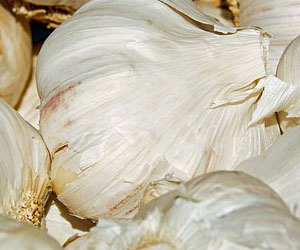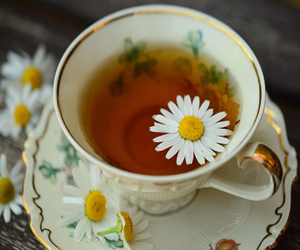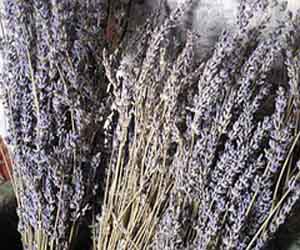



In today's fast-paced world, stress has become an almost ubiquitous part of our lives. Whether it's the pressures of work, family responsibilities, or other daily challenges, stress can take a significant toll on our physical and mental well-being. While there are various strategies for managing stress, herbal remedies have gained popularity as a natural and holistic approach to find relief. These remedies have been used for centuries in different cultures to promote relaxation and reduce stress levels. In this article, we'll explore some of the most effective herbal remedies for stress relief.
Chamomile: Chamomile is perhaps one of the most well-known herbs for stress relief. Its gentle, soothing qualities can help calm the mind and relax the body. Chamomile tea is a popular choice, but it's also available in the form of supplements or essential oils.
Lavender: Lavender's delightful aroma is not just pleasant; it has calming properties that can reduce anxiety and stress. You can use lavender essential oil in a diffuser, add a few drops to your bath, or even apply it topically.
Valerian Root: Valerian root is known for its sedative effects and is often used to improve sleep quality. Better sleep can significantly reduce stress. It's available as a supplement or in herbal tea blends.
Ashwagandha: Ashwagandha is an adaptogenic herb that can help the body better manage stress. It supports the adrenal glands and promotes a sense of calm and relaxation.
Passionflower: Passionflower is a traditional remedy for anxiety and nervousness. It can help relax the mind and ease tension.
Rhodiola: Rhodiola is another adaptogenic herb that can enhance the body's response to stress. It may also improve mental and physical performance during stressful periods.
Ginseng: Ginseng is an adaptogen that can improve the body's resilience to stress. It's available in different forms, such as Asian ginseng or Siberian ginseng.
Lemon Balm: Lemon balm has a mild sedative effect and can promote relaxation. It's often consumed as a tea or used as an essential oil.
Kava Kava: Kava kava is known for its calming and anxiety-reducing effects. It's often used to alleviate symptoms of generalized anxiety disorder and is available as a supplement.
Holy Basil (Tulsi): Holy basil is revered in Ayurvedic medicine for its stress-reducing properties. It can help combat the effects of chronic stress and promote emotional balance.
When using herbal remedies for stress relief, it's essential to consult with a healthcare professional, especially if you have underlying health conditions or are taking medications. The effectiveness and safety of these herbs can vary from person to person, and interactions with medications are possible.
Incorporating these herbal remedies into your daily routine can be a proactive step in managing stress. Many people find that the act of preparing and consuming herbal teas or using essential oils also provides a moment of calm and mindfulness in their day, further contributing to stress reduction.
Herbal remedies for stress relief offer a natural and holistic approach to managing the pressures of modern life. While these herbs can be effective in reducing stress and promoting relaxation, it's essential to use them mindfully and consult with a healthcare professional when necessary. Embracing the power of nature can be a gentle yet potent way to find peace and balance in a hectic world.
Harnessing Nature's Healing Power
 Aromatherapy: An Age-Old Practice
Aromatherapy: An Age-Old Practice
Aromatherapy finds its roots in ancient civilizations, where aromatic compounds derived from plants were used for their healing properties. These natural extracts, known as essential oils, are now being rediscovered as potent tools for enhancing health.
Physical Well-Being
The physical aspect of health is a cornerstone of overall well-being. Aromatherapy oils offer a wide range of benefits in this area. Essential oils such as lavender, eucalyptus, and tea tree oil are renowned for their ability to alleviate physical ailments. Lavender, for instance, is celebrated for its calming properties, making it an excellent choice for reducing stress and promoting relaxation. Eucalyptus and tea tree oil, on the other hand, are well-suited for respiratory health and can help relieve symptoms of congestion and coughs.
Emotional Well-Being
Emotions play a crucial role in our health, and aromatherapy oils have the potential to uplift our spirits and promote emotional balance. Scents like citrus, rose, and chamomile can enhance mood and reduce stress. By inhaling these fragrances or using them in relaxation rituals, individuals can experience a positive shift in their emotional states, fostering emotional well-being.
Mental Well-Being
Cognitive health is another vital component of overall well-being. Aromatherapy oils can enhance mental clarity, reduce stress, and improve concentration. Oils like peppermint and rosemary are particularly effective at boosting cognitive function. Diffusing these oils in workspaces or incorporating them into meditation practices can create a mental environment conducive to mental well-being.
 The constant connectivity and digital age have brought about a new set of challenges. Our smartphones and computers, while undoubtedly valuable tools, can also be sources of mental strain. The ever-present notifications, the compulsion to check social media, and the expectation of being constantly available can lead to heightened stress and decreased well-being. It's essential to establish healthy boundaries with technology and allocate time for digital detox to protect our mental health.
The constant connectivity and digital age have brought about a new set of challenges. Our smartphones and computers, while undoubtedly valuable tools, can also be sources of mental strain. The ever-present notifications, the compulsion to check social media, and the expectation of being constantly available can lead to heightened stress and decreased well-being. It's essential to establish healthy boundaries with technology and allocate time for digital detox to protect our mental health.
Moreover, the demands of daily life can sometimes lead to social isolation. With packed schedules and the pressures of work, we might neglect our social relationships, which are crucial for our mental well-being. Loneliness and a lack of social support can exacerbate feelings of depression and anxiety. It's vital to make time for social connections, nurturing relationships with family and friends to foster a sense of belonging and emotional support.
The toll on mental health is not just a matter of emotional well-being; it has a profound impact on physical health too. High levels of stress and anxiety can lead to various physical health issues, including cardiovascular problems, digestive disorders, and compromised immune function. Therefore, addressing mental health concerns is not just about emotional comfort but also about preserving one's overall health and longevity.
To counteract the toll of daily life on mental health, it's essential to prioritize self-care. This includes setting aside time for relaxation, engaging in physical activity, and maintaining a healthy work-life balance.
A Path To Fulfillment And Joy
 Fosters Positive Outlook: Gratitude is a powerful tool for cultivating a positive perspective on life. It shifts our focus from dwelling on what we lack to acknowledging and appreciating what we have. This change in mindset can lead to a happier and more content existence.
Fosters Positive Outlook: Gratitude is a powerful tool for cultivating a positive perspective on life. It shifts our focus from dwelling on what we lack to acknowledging and appreciating what we have. This change in mindset can lead to a happier and more content existence.
Reduces Stress And Anxiety: The practice of being thankful can have profound effects on our stress levels. It encourages us to acknowledge the good things in our lives, which, in turn, activates the brain's reward system, releasing "feel-good" neurotransmitters like dopamine and serotonin. These chemicals counteract the stress hormones in our bodies, leading to reduced anxiety and increased feelings of relaxation.
Enhances Emotional Well-Being: Expressing thankfulness and acknowledging our blessings can lead to improved emotional well-being. Gratitude has been linked to increased feelings of happiness, contentment, and overall life satisfaction.
Fosters Resilience: The art of being thankful helps build emotional resilience. When we can find reasons to be grateful, even in challenging situations, it strengthens our ability to bounce back from adversity and maintain a positive outlook on life.
Strengthens Relationships: Expressing gratitude in our relationships not only fosters deeper connections but also promotes a sense of trust and mutual appreciation. By recognizing the efforts and contributions of others, we create a more supportive and empathetic environment.






Nature's Soothing Elixir
 The Science Of Aromatherapy
The Science Of Aromatherapy
Aromatherapy, the practice of using essential oils for therapeutic purposes, capitalizes on the connection between our sense of smell and the brain's limbic system, which governs our emotions. The aromatic compounds in essential oils can influence our mood, emotions, and even our physical well-being.
Stress Reduction: A Holistic Approach
Stress affects us on multiple levels, and a holistic approach to its reduction is essential. Essential oils can address the interconnected aspects of stress, providing relief on both emotional and physical levels.
Emotional Stress Relief
One of the most well-known benefits of essential oils is their ability to alleviate emotional stress. Oils like lavender, chamomile, and rose can have a calming and soothing effect on the mind. Inhaling these fragrances or using them in massages can help reduce anxiety, lower stress levels, and promote a sense of well-being.
Physical Stress Relief
Stress often manifests physically, leading to muscle tension, headaches, and other discomforts. Essential oils like eucalyptus, peppermint, and ginger are valuable allies in relieving physical stress. They can be applied topically, diluted in carrier oils, or added to bath water to ease muscle tension and reduce headaches.
Stress Reduction Rituals
Incorporating essential oils into your daily routines can create a calming and stress-reducing environment. Diffusers are an excellent way to disperse the aroma throughout your space, but you can also use oils in baths, massages, or even by simply inhaling the scent from a tissue or handkerchief. Establishing rituals like these can be an effective way to manage stress.
Finding Meaning And Fulfillment
 Integrating Spirituality Into Everyday Life
Integrating Spirituality Into Everyday Life
Spirituality doesn't require a retreat to a mountain monastery or an isolated ashram. It can be integrated seamlessly into your everyday life. Here are ways to do so:
Mindful Awareness: Spirituality often begins with mindful awareness of the present moment. When you're fully present, you can appreciate the beauty and wonder of life as it unfolds.
Gratitude: A daily practice of gratitude can help you recognize the blessings in your life, fostering a sense of spiritual connection.
Acts Of Kindness: Acts of kindness, whether big or small, can be deeply spiritual. They not only benefit others but also connect you to a sense of purpose and interconnectedness.
Meditation And Reflection: Regular meditation and moments of self-reflection allow you to delve into your inner self, fostering a deeper understanding of your spiritual needs.
Nature Connection: Spending time in nature and appreciating the beauty of the natural world can evoke a profound sense of spiritual connection.